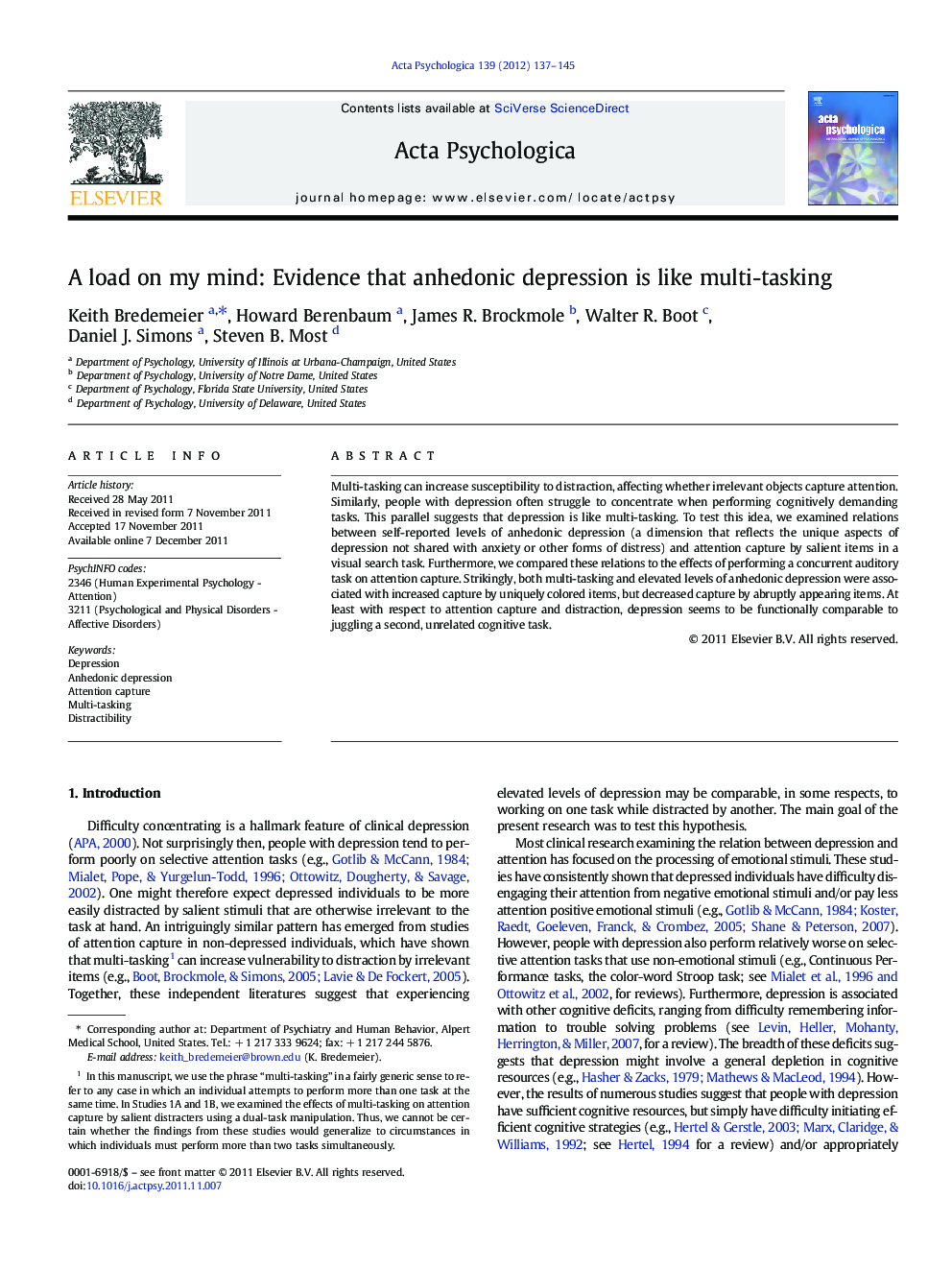| Article ID | Journal | Published Year | Pages | File Type |
|---|---|---|---|---|
| 920102 | Acta Psychologica | 2012 | 9 Pages |
Multi-tasking can increase susceptibility to distraction, affecting whether irrelevant objects capture attention. Similarly, people with depression often struggle to concentrate when performing cognitively demanding tasks. This parallel suggests that depression is like multi-tasking. To test this idea, we examined relations between self-reported levels of anhedonic depression (a dimension that reflects the unique aspects of depression not shared with anxiety or other forms of distress) and attention capture by salient items in a visual search task. Furthermore, we compared these relations to the effects of performing a concurrent auditory task on attention capture. Strikingly, both multi-tasking and elevated levels of anhedonic depression were associated with increased capture by uniquely colored items, but decreased capture by abruptly appearing items. At least with respect to attention capture and distraction, depression seems to be functionally comparable to juggling a second, unrelated cognitive task.
► We examine relations between levels of anhedonic depression and attention capture. ► We compare these relations to the effects of multi-tasking on attention capture. ► Multi-tasking led to increased capture by color but decreased capture by onsets. ► Elevated levels of anhedonic depression were associated with this same pattern. ► Depression seems to be functionally comparable to juggling a secondary task.
